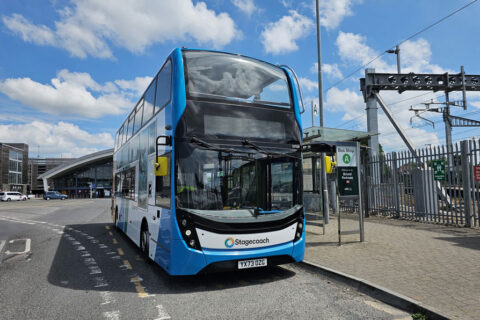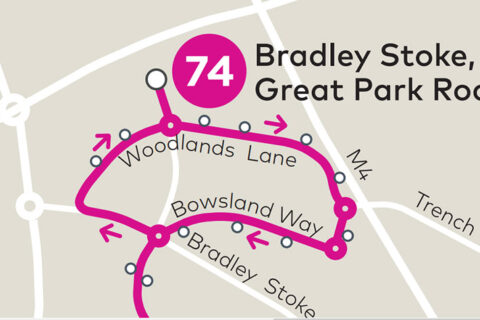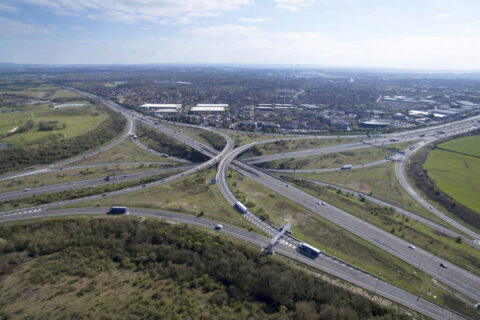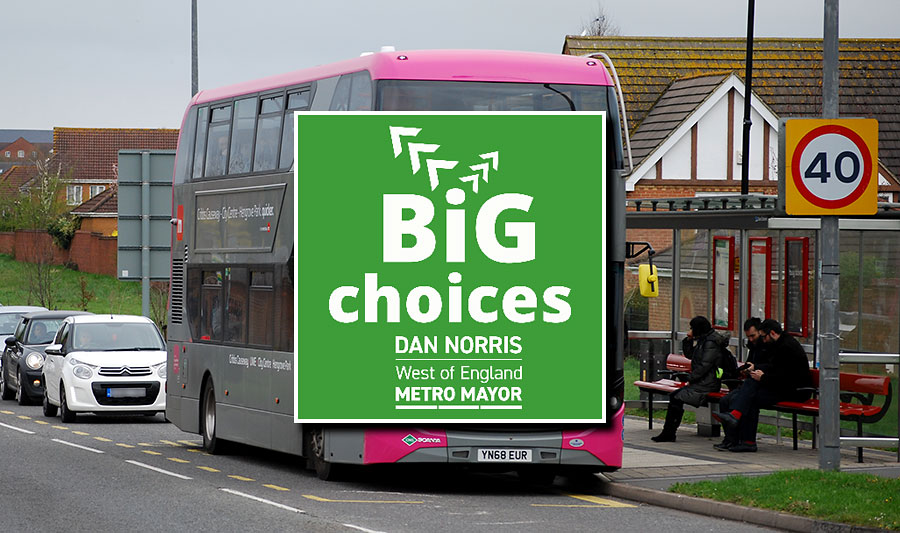
Residents of the Stokes are being urged to attend a public meeting in Bradley Stoke this Thursday (4th August 2022) at which possible strategies to address the “toxic mix” of challenges facing local bus services will be discussed.
West of England mayor Dan Norris has called the ‘Big Choices on Buses’ meeting to not only examine issues surrounding individual bus routes (such as Bradley Stoke’s cut-back 73 service) but to also explore bigger questions about the trade-offs and compromises that are likely to be necessary in the coming months.
The meeting takes place at Brook Way Activity Centre (adjacent to Bradley Stoke Surgery), Brook Way, Bradley Stoke BS32 9DA [map], starting at 6.30pm.
The Bradley Stoke meeting is the last of four similar events taking place across Bristol, Bath and South Gloucestershire this week.
The challenges
Buses in the West of England are facing what the metro mayor describes as a “toxic mix” of challenges. There is a critical shortage of bus drivers, passenger numbers are 25 percent down on pre-pandemic levels, inflation is spiralling and the Department for Transport has confirmed that all Covid-19 financial assistance will end in October 2022.
First West of England managing director Doug Claringbold has already warned of planned cuts in commercially operated services in the autumn, telling a recent meeting of South Gloucestershire Council’s Scrutiny Commission:
“In October we need to have a timetable which is robust, so there will have to be some planned changes to bring us back into line where our resources meet the services we operate.”
“We are not prepared to run a non-reliable service. We have to make sure we have a set of services people can rely on and not try to do too much.”
“Those are the difficult decisions we have to make in terms of getting that service network operating in October.”
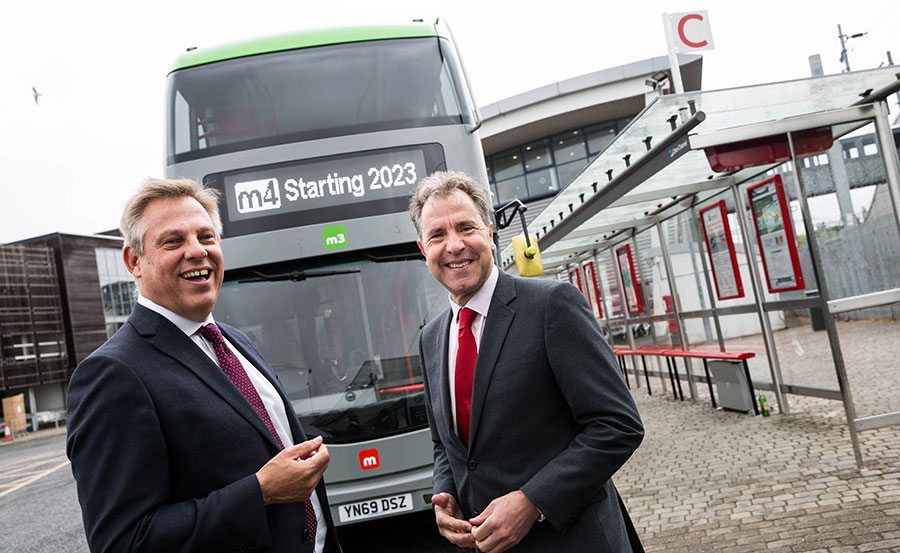
But it’s not all doom and gloom as the West of England region secured the second highest cash injection (£105.5m) for buses from government – of all local transport authorities in England (outside London) – as part of its Bus Service Improvement Plan. This money will kick in next year, but it can only be used for “new and innovative” services and not existing routes.
Mr Norris said:
“There are no right or wrong answers here. That’s why I need to get a sense of how local people feel, and hear their ideas and wisdom. We need to think how to deploy the limited numbers of bus drivers in the region. Do people want more frequent or more reliable services? Would you use the limited cash available to support the last rural bus in a village or add extra buses on overcrowded city routes?”
The metro mayor says he is keen to hear from people who use buses but, crucially, also from those who don’t as increasing passengers numbers is vital to increase fare income and to tackle the climate emergency.
Mr Norris continued:
“I will not shy away from the very real challenges we face on the buses at the moment. Without doubt, there will be more cuts as government Covid-19 support comes to end in October. I want to be completely up front about that, and this is why I want to have a conversation with local people about the big choices we face now.”
“We need to ensure what we do is ‘value for money’ for West of England taxpayers and come up with new ideas. For example, I’d like to see far more minibuses in rural areas that aren’t on fixed routes to meet the needs of more communities. I know too that many residents would like to make the switch to buses, not least because so many local people really want to help tackle the climate emergency. We need to design a service that meets more of their needs. So please do get involved with our conversation about buses. I really need your help. Together let’s make big choices.”
Survey
In addition to the meetings, members of the public can provide feedback through an online survey. There is also a printable version of the survey, which can be completed and returned by post. The ‘Big Choices on Buses’ survey will remain open until 31st August 2022.
Information gathered at the meetings and via the online survey will feed into a major review of bus services that is being carried out by the West of England Combined Authority (Weca) this summer.
Key information
Ahead of the meeting, Mr Norris has published the following ‘key information’ points which outline the challenges and opportunities facing buses in the West of England. These will be used to stimulate discussion, with meeting attendees working in groups to come up with ideas for how to make services better with limited budgets.
Passenger numbers
Overall, about 95 percent of people who used to travel by bus pre pandemic are back travelling again. But they are making fewer journeys – so bus passenger numbers is around 75 percent. This matters because fewer passenger journeys means less fare income.
The bus driver shortage
Even with all the money in the world, bus companies have another problem, a serious bus driver shortage. There are over 100 vacancies in the West of England. The bus companies and the West of England Combined Authority are investing in recruitment campaigns and training.
Who runs the buses?
The bulk of bus services are run commercially by First Bus, others are run by Stagecoach and other providers. Around 60 bus services are subsidised (in full or in part) by the West of England Combined Authority because there is a community need but no company wants to run them as they are not commercially viable. There are government rules for this which say that subsidised services can’t compete with commercial routes.
How much do we spend on buses?
Local councils are in charge of supporting bus services. Where there is a Combined Authority they pay a ‘transport levy’ to the Combined Authority who use the cash (and can get economies of scale) along with money given directly to Combined Authorities from Government. The list shows you how much local councils spend per head:
- Greater Manchester £67.58
- West Midlands £39.80
- Liverpool £63.58
- West of England £20.49
- North of the Tyne £43.51
- Cambridge & Peterborough £15.38
Bus costs
Bus costs, like everything else, are soaring. It is costing 43 percent more to run bus services than last year.
October timetable changes
In October, government Covid-19 funding for buses runs out. The Combined Authority and the three local councils offered to fund all the buses they support at the moment until April, but that will depend, of course, on if the bus companies choose to continue running them. Given the driver shortage that is highly unlikely and so bus cuts are likely.
More information and related links:
- Big Choices on Buses webpage (Weca)
- Big Choices on Buses event facilitator pack [PDF] (Weca)

